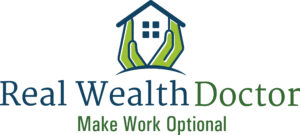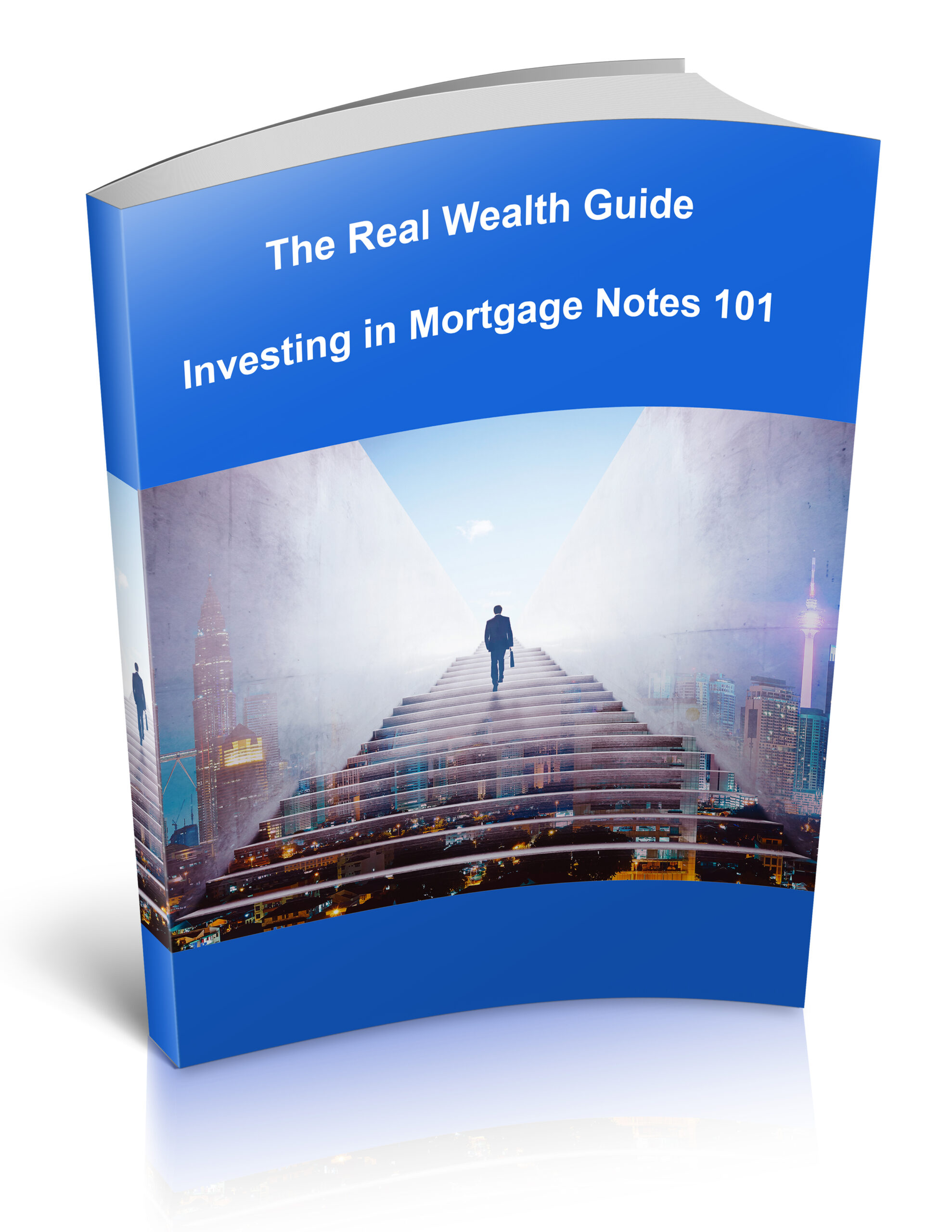Let Real Wealth Doctor Help You Achieve Fiscal Health
Concerned about the volatility of the stock market? Interested in diversifying your portfolio? Looking for the security of Real Estate investments without the management hassles?
Stop trading time for dollars; make your money work for you.
Peace of mind may be closer than you think. Schedule a complimentary consultation call to take your first step to Real Wealth. Discover how you can make work optional. GET STARTED TODAY.
If you look at people who have built a lot of wealth, you will discover that almost all of them have included some form of real estate investing.
The good news, Doctor, is that you’re in a great position to build wealth due to your potential to earn high income. But if you really want to take it to the next level, then learn the lessons of history and follow the path of the ultra wealthy, who almost always include real estate as part of their investment strategy. You can become part of this exclusive club, and enjoy the fruits of real estate – even if you have never invested in real estate in the past, even if you have a busy medical practice.

The beauty of passive investing
Passive investing is long term wealth building strategy, which minimizes buying and selling and avoids many of the fees common to more active investment strategies. Many people are drawn to the idea of passive investing, and it can be a great fit for busy professionals, or anyone wishing to focus on other pursuits while allowing their money to work for them. One of the best passive investments we have discovered is long term mortgage notes. Now, the term “passive investing” is a bit of a misnomer, as there is still some effort required up front to identify note to purchase and perform due diligence. However, once you purchase the note, it is possible to reap the rewards for many years following that initial period of activity. Which means that the money will continue to flow into your life long after you made the initial investment.
If notes are so great, why haven’t I heard about them?
Before we answer that question, there is another more basic query:
What are Notes?
Simply put, a Note is a promise to pay. Whenever you borrow money and document the terms of repayment, you have created a note. Whether it’s a credit card contract, a student loan, a car loan, a business loan, or a home mortgage, we deal with notes every day. However, because most of us remain on the consumer side of the transaction, we tend not to consider the power of moving to the other side of the equation. When you are a note holder, you essentially become the bank or the lender. The borrower agrees to pay you back a certain sum over a certain period of time with a certain interest according to the terms of the note.
How do I find an investment that will pay me compound interest?
Glad you asked. We specialize in mortgage note investments, specifically long term Performing Notes.
There are other types of real estate mortgage notes, such as Non-Performing notes and Hard Money Lending, but we have found these are not nearly as passive as long term Performing Notes. While these other types of note investments can offer good returns, they typically carry a higher risk profile and tend to require a great deal more effort.
Investing in Performing Notes could not be simpler. We help you purchase performing notes to diversify your portfolio and decrease its risk while providing above market returns – an important part of reaching your investment goals.
Notes are not subject to volatility the stock market. Notes provide you with consistent monthly payments backed by real estate. This means you have the physical real estate to fall back on should the borrower default. The home’s value and borrower’s long term payment history contribute to the overall safety and security of the note.
As the borrower pays down the note, you will receive a portion of your principal with each monthly payment further reducing your already low risk since your investment is returned over time rather than waiting and receiving it at the end of the term. In other words, the longer you own the note, the safer it becomes.
 Albert Einstein famously said “Compound interest is the 8th wonder of the world. Those who understand compound interest are destined to collect it. Those who don’t are doomed to pay it.”
Albert Einstein famously said “Compound interest is the 8th wonder of the world. Those who understand compound interest are destined to collect it. Those who don’t are doomed to pay it.”
So now let’s address that earlier question:
If notes are so great, why haven’t I heard about them?
The reality is that most investors never stumble on to notes until they have worked through and grown tired of most of the other “sexier” (and higher risk) real estate investment models, such as flips, buy and hold rentals, apartments, etc. Many of these investors never learn about notes, as they are so focused on all of the activity required with these investments. Another reason is that it would be very difficult to make a bunch of 30 minute segments about Notes for HGTV. And quite frankly, the banks don’t want to let you in on their little secret that is quietly making them richer: deposit your money and make a paltry interest, then borrow that same money at a much higher interest rate.
Instead of paying interest, learn to earn it. Make compound interest your friend, not your enemy.
Allow me to show you what I mean, using three simple examples:
1. A savings account paying 6% a year
Imagine that you have $1,000 in a tax-free savings account which pays yearly interest of 6%. If you allow this interest to remain and grow in your account, this is what happens:
After one year, your $1,000 has earned interest of $60 and your balance is now $1,060. The following year, this balance earns interest of $63.60 (the original $60 of interest, plus a further $3.60 of interest on the original $60 of interest). So in year three, your interest is $67.42 and your balance rises to $1,191.02. This virtuous circle continues until, after ten years, you have $1,790.85 — your original grand, plus almost $800 in interest. Not bad, agreed?
Now let’s take a look at the flipside of the coin: paying compound interest:
2. An overdraft charging 1% a month
Let’s say that you have an overdraft of $1,000, and your bank charges interest at 1% a month (12.68% APR). After one month, you owe $1,010 – your original debt, plus $10 of interest. The next month, you are $1,020.10 in the red. This continues until, at the end of the year, you owe $1,126.83. In other words, in just twelve months, your overdraft has increased by more than an eighth, or 12.68%. Whoops!
Now we’ll take a look at an even more unpleasant example of compound interest working against you:
3.A credit card charging 2% a month
In this scenario, let’s say that you owe $1,000 on a credit card which charges 2% a month (26.82% APR). Assuming that your monthly repayments are exactly balanced by equal spending, then your debt will build and build. After one month, you owe $1,020 and, after two months, $1,040.40. This vicious circle continues until, by the end of the year, you owe $1,268.24 and your debt has increased by more than a quarter (26.82%). Yikes!
As you can see, every time you’re tempted to buy that `gotta-have-it item’ by dipping even deeper into your credit limit, you are digging a bigger hole. When you combine high rates of interest on debt with the impressive power of compound interest, you become a big loser. Indeed, that extra $500 on your credit card could cost you $1,000 in interest before you pay it off!
If you would like to discover how Notes fit into your wealth building plan, we invite you to schedule a free consultation.
If you would like to discover how Notes fit into your wealth building plan, we invite you to schedule a free consultation.
Contact UsGrab your free Guide to Investing in Mortgage Notes (with a new chapter on Real Estate Investing in a Post-Covid World)
Did you experience heavy losses in the stock market?
In this Guide you will learn:
 How market specific factors affect your profits
How market specific factors affect your profits
 The various risks involved in many asset types
The various risks involved in many asset types
 How creative finance structures can save the profits you may have lost in a market crash or correction.
How creative finance structures can save the profits you may have lost in a market crash or correction.
Watch our Informational Video on Note Investing
Let Real Wealth Doctor Help You Create Financial Freedom...and make work optional.
Schedule an Appointment
Real Wealth Doctor
PO BOX 175
Coeur d’Alene, Idaho 83816
208-758-4133
Disclaimer: Information provided for informational purposes only. Please seek competent legal, tax or investment advice as appropriate. All Investments involves risk and possible loss of principal.
© 2021 Real Wealth Doctor | United States Note Buyer




